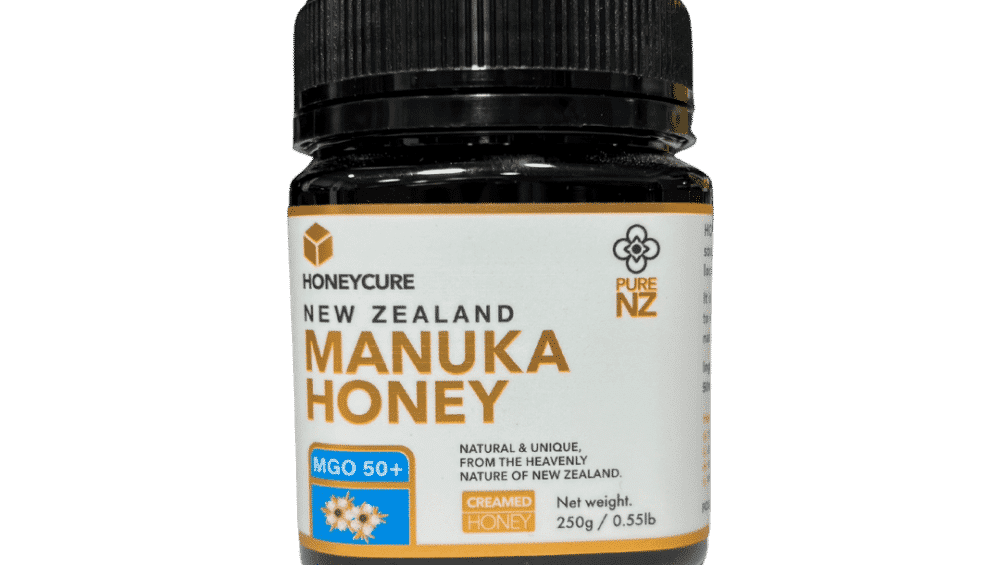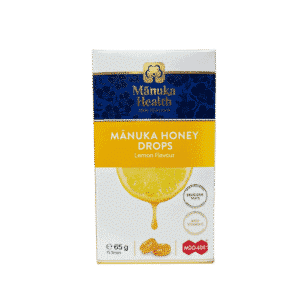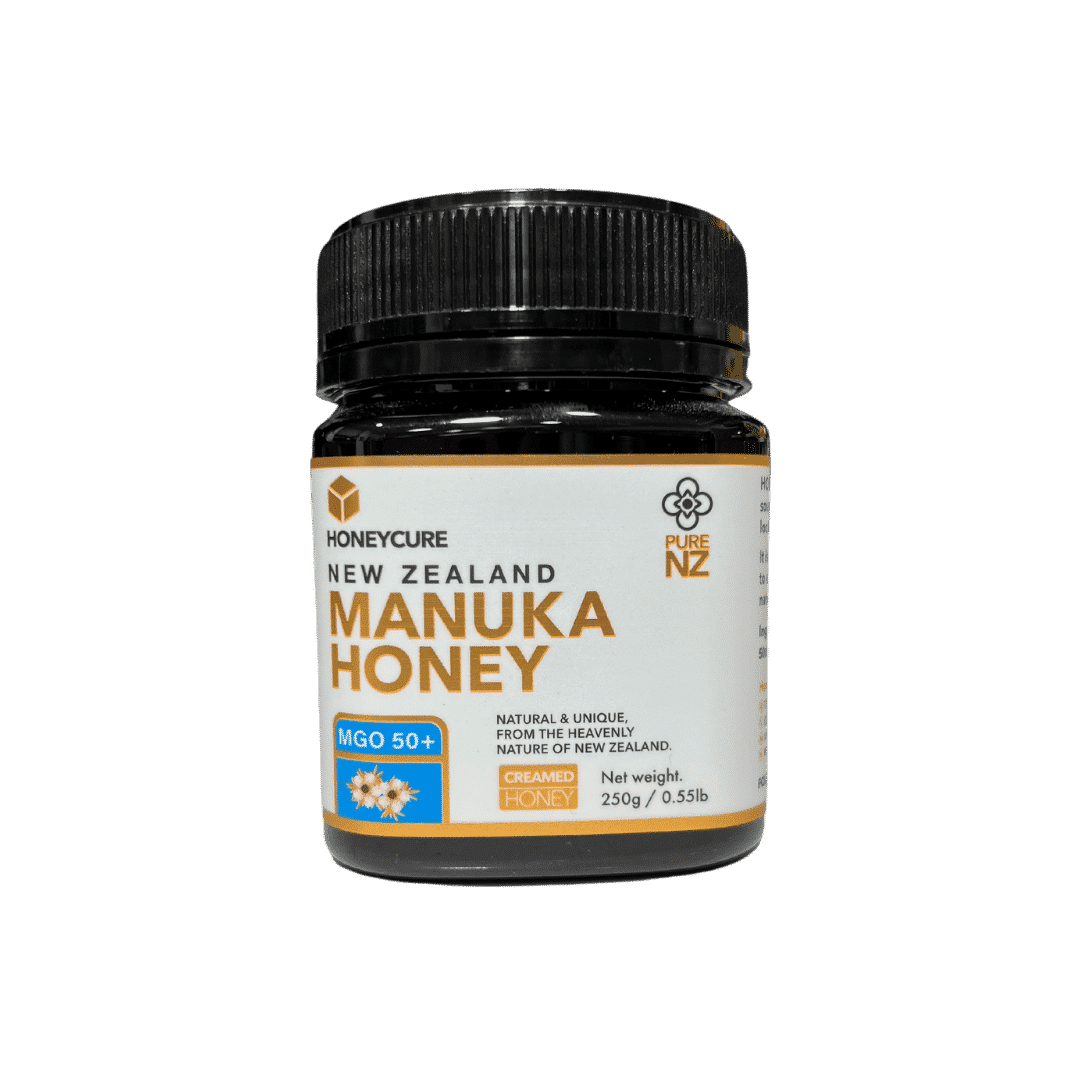What is Manuka Honey?
Manuka honey is a type of honey that is only found in New Zealand.
Bees pollinate the flower Leptospermum scoparium, widely known as the Manuka bush, and create it. Manuka honey is distinguished from other honey’s by its antibacterial qualities.
Its active constituent, methylglyoxal, is thought to be responsible for the antibacterial properties.
Manuka honey also possesses antiviral, anti-inflammatory, and antioxidant properties.
In reality, it has long been used to treat wounds, soothe sore throats, prevent tooth decay, and improve digestive problems.
Manuka honey has seven scientifically proven health benefits.
1. Assist with Wound Healing
Manuka honey has been used to cure wounds, burns, sores, and boils since ancient times.
The US FDA authorised Manuka honey as a wound therapy alternative in 2007.
Manuka honey has antibacterial and antioxidant qualities, as well as the ability to keep the wound moist and provide a protective barrier against microbial diseases.
Manuka honey has been demonstrated in multiple trials to improve wound healing, accelerate tissue regeneration, and even reduce pain in burn patients.
One two-week study, for example, looked at the impact of putting a Manuka honey treatment to 40 persons who had non-healing wounds.
According to the findings, 88 percent of the wounds shrank in size. Furthermore, it aided in the creation of an acidic wound environment, which promotes wound healing
Furthermore, Manuka honey may aid in the healing of diabetic ulcers.
Manuka honey wound dressings, when used in conjunction with standard wound treatment, cured diabetic ulcers more successfully than conventional treatment alone, according to a Saudi Arabian study.
In addition, a Greek study found that Manuka honey wound dressings sped up wound healing and cleaned wounds in diabetic foot ulcer patients.
Another study looked at the usefulness of Manuka honey in healing surgically repaired eyelid lesions. Regardless of whether the incisions were treated with Manuka honey or vaseline, they discovered that all eyelid wounds healed nicely.
In comparison to scarring treated with vaseline, patients indicated that scarring treated with Manuka honey was less stiff and much less painful.
Finally, Manuka honey can help with wound infections caused by antibiotic-resistant bacteria like Staphylococcus aureus MRSA.
As a result, applying Manuka honey to wounds and infections on a regular basis may help to prevent MRSA.
2. Encourage good oral hygiene
Periodontal disease affects over half of all Americans, according to the CDC.
It’s crucial to keep nasty oral bacteria that generate plaque at bay if you want to avoid tooth decay and maintain your gums healthy.
It’s also critical not to eliminate all of the beneficial oral bacteria that keep your mouth healthy.
Manuka honey benefits has been found in studies to combat harmful oral bacteria linked to plaque production, gum irritation, and tooth decay.
Manuka honey, which has a strong antibacterial activity, has been found to suppress the growth of dangerous oral bacteria such as P. gingivalis and A. actinomycetemcomitans in studies.
One study looked at the effects of sucking or chewing on a honey chew on plaque and gingivitis reduction. Manuka honey was used to make the honey chew, which was akin to a chewy honey candy.
Participants were told to chew or suck on the honey chew for 10 minutes after each of their three daily meals, or chew sugar-free gum.
When compared to those who chewed sugar-free gum, the honey-chew group demonstrated a significant reduction in plaque and gingival bleeding.
Consuming honey for dental health may seem paradoxical, given that you’ve probably been informed that eating too many sweets causes cavities.
Unlike confectionery and refined sugar, however, Manuka honey’s powerful antimicrobial properties make it unlikely to cause cavities or tooth disease.
3. Get Rid of a Sore Throat
If you have a sore throat, Manuka honey may be able to provide some assistance.
Its antiviral and antibacterial characteristics can help to reduce inflammation and fight pain-causing germs.
Manuka honey not only kills bacteria, but it also coats the inner lining of the throat, making it feel better.
A recent study looked at the impact of Manuka honey on Streptococcus mutans, a kind of bacteria that causes sore throats, in patients undergoing chemotherapy for head and neck cancer.
Researchers discovered a substantial reduction in Streptococcus mutans after consuming Manuka honey.
Manuka honey also reduces the dangerous oral bacteria that causes mucositis, which is a typical side effect of radiation and chemotherapy.
Mucositis is a condition in which the mucous membranes lining the oesophagus and digestive tract become inflamed and painfully ulcerated.
Various forms of honey have been recommended as natural cough suppressants for quite some time.
Honey was found to be as effective as a typical cough suppressant in one study.
Despite the fact that Manuka honey was not utilised in this trial, it is likely to be just as beneficial in reducing coughs.
4. Assist in the Prevention of Gastric Ulcers.
Stomach ulcers are one of the most frequent human disorders.
They are sores that develop on the stomach lining and cause stomach pain, nausea, and bloating.
H. pylori is a common pathogen that causes stomach ulcers in the majority of people.
According to research, Manuka honey may aid in the treatment of H. pylori-caused stomach ulcers.
A test-tube study, for example, looked at its effects on biopsies of H. pylori-caused stomach ulcers. The findings indicated that Manuka honey is an effective antibacterial agent against H. pylori.
However, a two-week trial in 12 people who took 1 tablespoon of Manuka honey by mouth every day found that it had no effect on H. pylori bacteria.
As a result, more research is needed to thoroughly examine its ability to treat H. pylori-caused stomach ulcers.
Excessive alcohol use can potentially induce gastric ulcers.
However, a mouse study found that Manuka honey can help prevent alcohol-induced stomach ulcers.
5. Relieve Digestive Issues
Irritable bowel syndrome (IBS) is a digestive illness that affects many people.
Constipation, diarrhoea, stomach pain, and irregular bowel motions are some of the symptoms.
Researchers have discovered that drinking Manuka honey on a daily basis may help to alleviate these symptoms.
In rats with IBS and ulcerative colitis, a kind of inflammatory bowel illness, manuka honey has been shown to increase antioxidant status and reduce inflammation.
It has also been demonstrated to kill Clostridium difficile bacteria.
Clostridium difficile, commonly referred to as C. diff, is a bacterial infection that causes severe diarrhoea and intestinal inflammation.
Antibiotics are widely used to treat C. diff infections. However, a recent study found that Manuka honey is effective against C. diff strains.
Manuka honey was found to destroy C. diff cells, making it a possible therapeutic.
It’s worth noting that the preceding research looked at the effects of Manuka honey on bacterial infections in rats and test tubes.
More research is needed to reach a definitive conclusion about its impact on bacterial bowel infections.
6. Cystic Fibrosis Symptoms May Be Treated
Cystic fibrosis is a genetic disease that affects the lungs, as well as the digestive system and other organs.
It affects the mucus-producing cells, resulting in excessively thick and sticky mucus. This viscous mucus clogs up airways and ducts, making breathing difficult.
Upper respiratory infections are unfortunately fairly common in cystic fibrosis patients.
Bacteria that cause upper respiratory infections have been demonstrated to be resistant to manuka honey.
Two common bacteria, Pseudomonas aeruginosa and Burkholderia spp., can cause deadly upper respiratory infections, especially in fragile people.
In persons with cystic fibrosis, Manuka honey was found to be helpful against these germs in one study.
It slows their growth and acts in conjunction with antibiotic treatment, according to the findings.
As a result, researchers found that Manuka honey could be useful in treating upper respiratory infections, particularly in cystic fibrosis patients.
7. Acne Treatment.
Hormonal fluctuations are the most common cause of acne, but it can also be a result of a poor diet, stress, or bacteria growth in closed pores.
When combined with a low-pH solution, Manuka honey’s antibacterial property is commonly touted as a way to fight acne.
Manuka honey may help keep your skin free of microorganisms, speeding up the healing process for acne.
Manuka honey is also thought to reduce inflammation associated with acne because of its anti-inflammatory effects.
However, research on Manuka honey’s effectiveness to treat acne is limited.
However, one study looked into the effects of kanuka honey, which is similar to Manuka honey in terms of antibacterial qualities.
It was discovered that kanuka honey was just as good at treating acne as antibacterial soap.
More research is needed before Manuka honey can be declared a good home treatment for acne.
Is Manuka Honey Safe to Consume?
Manuka honey is generally considered safe to consume by most individuals.
Some people, however, should seek medical advice before using it, including:
Diabetic patients. Natural sugar is abundant in all varieties of honey. As a result, Manuka honey consumption may have an effect on blood sugar levels.
Those who are allergic to bees or honey. Those who are allergic to other types of honey or bees may have an allergic reaction to Manuka honey if they eat it or apply it.
Infants. Due to the danger of newborn botulism, a type of foodborne sickness, the American Academy of Pediatrics does not advocate administering honey to babies under the age of one.
Components of Manuka Honey
Most honey has an antibacterial property due to hydrogen peroxide. However, some varieties, such as Manuka honey, have special antimicrobial properties.
A molecule called methylglyoxal is one of the most important antibacterial components of Manuka honey (MGO). MGO is produced by the conversion of another component found in Manuka honey called dihydroxyacetone (DHA), which is found in high concentration in the nectar of Manuka flowers.
The stronger the antibacterial effect, the higher the MGO concentration.
Manuka honey potency is graded on a scale by honey producers. UMFTM means for Unique Manuka Factor, and it’s the name of the rating.
MGO, DHA, and leptosperin, three characteristic components found in genuine Manuka honey, are used to calculate the UMFTM rating.
Manuka honey must have a minimum UMFTM 10+ rating to be deemed therapeutically effective. Doctors and researchers, on the other hand, aren’t convinced if this ranking implies anything in terms of medicine.
Several recent studies have found that applying Manuka honey to wounds and leg ulcers can be beneficial. It may also help to combat infection and speed up the healing process, according to research.
Honey is included in the Natural Medicines Comprehensive Database as “probably effective” for treating burns and wounds.
Honey, according to the Cochrane Review, may speed up the healing of moderate burns and surgical wounds when compared to standard bandages.
Another study showed that by lowering plaque buildup, Manuka honey can help prevent gingivitis and other periodontal diseases. Manuka honey seems to help prevent oesophageal inflammation caused by cancer treatment such as radiation and chemotherapy in several studies.
Another advantage of honey is that, unlike antibiotics, it does not appear to cause germs to become resistant. After repeated exposure to ordinary antibiotics, these so-called “superbugs” emerge. To treat them, special antibiotics are required.
The majority of Manuka honey studies have involved small groups of patients, and research has yet to establish that Manuka honey aids in lowering cholesterol or balancing gut microbes.
Furthermore, no large research on the effects of Manuka honey on cancer, diabetes, or fungal infections have been conducted.










